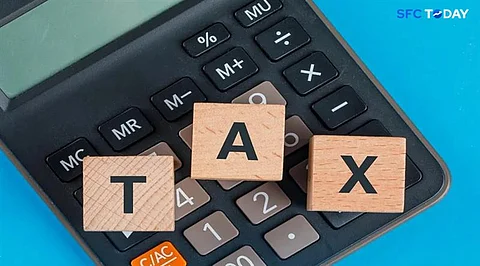Income Tax Bill 2025 Clears Lok Sabha Hurdle: What's in Store?
On August 11, 2025, the Lok Sabha passed the Income-tax (No. 2) Bill, 2025 along with the Taxation Laws (Amendment) Bill, 2025. This happened amid protests from the Opposition and without a formal debate. The Bill aims to replace the Income Tax Act of 1961, which has been in force for over sixty years. The main purpose is to simplify the law, modernise the language, and reduce compliance burden for both individuals and businesses.
The Bill will now move to the Rajya Sabha for approval. Once passed there, it will go to the President for final assent before becoming law.
Why a New Income Tax Bill Was Needed
The government introduced a new draft after withdrawing the earlier version in February 2025. This change came after a Select Committee reviewed the draft and suggested hundreds of edits. The revised Bill now includes most of those recommendations.
Finance Minister Nirmala Sitharaman explained that the updated version uses the “S.I.M.P.L.E” principle, meaning it focuses on clarity, precision, and easier understanding for taxpayers. The goal is to remove complicated legal terms and make the law more practical and accessible.
When Will It Take Effect?
Most changes under the new Bill will be effective from April 1, 2026. This means the new rules will apply from the Financial Year 2026–27. However, the Bill must first pass in the Rajya Sabha and receive the President’s assent before the government can notify the exact timelines.
Key Changes in the Bill
1) Refunds for Late Income Tax Return Filers
A major taxpayer-friendly move allows individuals to claim refunds for excess TDS (Tax Deducted at Source) even if the Income Tax Return is filed late. This is especially helpful for small taxpayers who file returns mainly to get refunds. Earlier, missing the deadline meant losing the refund right.
2) Easier Language and Structure
The Bill replaces terms like “Assessment Year” and “Previous Year” with a more straightforward term—“Tax Year”. This change makes it easier for people to understand their filing period and reduces confusion.
3) Clearer Rules for Property Income
The Bill brings clarity to house property taxation. It explains how standard deductions, municipal taxes, and pre-construction interest will be treated. One notable change is removing the notional rent requirement for vacant property owners, which often created unnecessary disputes and increased tax burden.
4) Corporate Tax Relief and TDS Flexibility
The Bill brings back Section 80M relief, allowing companies to deduct dividends they receive from other companies. This prevents double taxation on corporate dividends. It also introduces a provision for advance NIL-TDS certificates in cases where there is no actual tax liability. This helps avoid cash flow issues for businesses.
5) Pension Taxation Alignment
Tax rules for the Unified Pension Scheme (UPS) will now match those for the National Pension System (NPS). This ensures fair treatment for retirees, especially regarding lump sum withdrawals at retirement and premature exits.
6) Charitable Donations Exemption Restored
The Bill restores the exemption for anonymous donations to trusts engaged in both religious and charitable activities. This had been removed in the earlier draft but was brought back after recommendations from the Select Committee.
Political and Legislative Journey
The Lok Sabha passed the Bill without holding a debate, as protests over other political matters disrupted proceedings. Supporters say the Bill has already undergone months of committee review and public feedback, so immediate passage was justified. Critics argue that such a major change to tax laws deserved thorough discussion in Parliament.
The Bill will face its next challenge in the Rajya Sabha, where detailed clarifications and possible amendments could still be suggested.
What Will Remain the Same for Now
Although the Bill changes the structure and wording of the law, tax rates and slabs have not been immediately altered. Any changes to rates, surcharges, or exemptions will likely come later through separate notifications or budget announcements before April 2026.
For now, the focus is on simplifying the language, removing outdated provisions, and reducing confusion in compliance.
How the New Law Will Be Implemented
The government plans to use a technology-first approach for administering the new tax law. This will involve faceless assessments, pre-filled return forms, and reduced direct contact between taxpayers and tax officers. By tightening definitions and making the law clearer, the government also hopes to reduce tax disputes.
The Transition Roadmap
Rajya Sabha Approval and Presidential Assent – The Bill needs to be passed in the upper house and then signed by the President.
Rule-making and Notifications – The Central Board of Direct Taxes (CBDT) will issue detailed rules, FAQs, and guidelines to explain how the new provisions will work.
Technology and Form Updates – The income tax portal, return forms, and TDS certificates will be updated before April 2026.
Pension Scheme Adjustments – Clear guidelines will be issued for migration and withdrawals under the updated pension rules.
Impact on Different Stakeholders
Salaried Employees and Small Taxpayers – Easier refund rules for late filings and clearer house property taxation rules will reduce stress and disputes.
Retirees and Investors – UPS and NPS alignment will simplify retirement planning and ensure fairer tax treatment.
Corporates – Dividend relief will prevent double taxation, and NIL-TDS certificates will help improve cash flows.
Charitable Trusts – Restored exemption for anonymous donations will support stable funding.
Final Thoughts
The Income-tax (No. 2) Bill, 2025 is the biggest rewrite of India’s direct tax law in more than sixty years. Its main aim is to make the law simpler, fairer, and easier to follow. With changes like refunds for late filers, clearer property income rules, corporate dividend relief, and pension scheme parity, it promises a smoother tax experience for individuals and businesses alike.
The Bill’s changes will officially take effect from April 1, 2026, provided it passes in the Rajya Sabha and receives Presidential assent. The months ahead will be crucial for taxpayers to prepare for the transition, as detailed rules and guidelines will start coming out soon.

